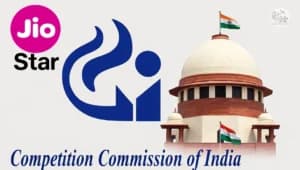In a landmark judgment advocating the rights of persons with disabilities, the Supreme Court has struck down a provision in the Madhya Pradesh Judicial Services that barred visually impaired and low-vision candidates from being appointed to judicial positions.
The Court firmly stated:
"Visually impaired candidates cannot be said to be 'not suitable' for judicial service and they are eligible to participate in selection for posts in judicial service."
This decision reinforces the fundamental right to reasonable accommodation through affirmative action and acknowledges substantive equality by recognizing that indirect discrimination also leads to exclusion.
A bench comprising Justices JB Pardiwala and R. Mahadevan underscored that disability does not hinder professional excellence. The Court cited numerous legal luminaries with disabilities who have made significant contributions to the legal field.
Read Also:- Supreme Court Grants Interim Bail to Ex-Civil Servants in Chhattisgarh Coal Levy Scam Case
The Court referred to the IDAP interview series, It Can Be Done, conducted by Rahul Bajaj, Anusha Reddy, and Madhavi Singh. The series highlighted ten blind or low-vision lawyers and judges, two of whom are from India. Among them, Senior Advocate S.K. Rungta, designated as a Senior Advocate by the Delhi High Court in 2011, has played a crucial role in eliminating barriers for persons with disabilities in the legal profession. Initially relying on clerks for mobility and filing, he later adapted to assistive technology, significantly reducing dependency. His contributions have ensured the entry of visually impaired individuals into civil services, enforced disability reservations under Indian law, and advocated for the right of visually impaired persons to serve as witnesses. He was also instrumental in shaping the Persons with Disabilities (Equal Opportunities, Protection of Rights, and Full Participation) Act, 1995.
Another remarkable legal expert is Nirmata Narasimhan, a visually impaired lawyer serving as Policy Director at the Centre for Internet and Society. She played a pivotal role in drafting India’s National Policy on Universal Electronic Accessibility and worked closely with government agencies to integrate accessibility into public programs. In recognition of her efforts, she received the National Award for Empowerment of Persons with Disabilities in 2010.
The Court also mentioned internationally acclaimed figures such as Justice Zak Mohammed Yacoob, a former judge of the South African Constitutional Court who lost his sight at 19 months due to meningitis. Justice David S. Tatel, a judge on the U.S. Court of Appeals for the District of Columbia Circuit, is another example of a visually impaired professional who has excelled in law. David Lepofsky, a distinguished Canadian lawyer and disability rights activist, and Tomer Rosner, a blind legal advisor to the Israeli Parliament who was instrumental in drafting disability rights legislation, were also recognized. The Court also highlighted the achievements of Jack Chen, a blind patent attorney at Google; Yetnebersh Nigussie, an Ethiopian lawyer and disability rights advocate who lost her eyesight at the age of five; Judge Ronald M. Gould, a U.S. Court of Appeals judge for the Ninth Circuit; and Haben Girma, the first deafblind graduate of Harvard Law School.
Read Also:- Supreme Court: No Presumption of Corruption Without Proof of Bribe Demand and Acceptance
Among the inspiring Indian legal professionals mentioned were Milan Mittal, a visually impaired lawyer at Indus Law Firm, Rajesh Asudani, who started as a railway announcer before pursuing law and becoming an Assistant Manager at RBI, and Shirish Deshpande, a faculty member at MNLU who studied at Oxford University.
The Court emphasized that these individuals have demonstrated that visual impairment is no hindrance to attaining professional excellence. They have competed on equal footing with their peers and made invaluable contributions to the justice system.
"Disability is no bar to excellence in the legal profession or any other field."
This historic ruling not only upholds the rights of visually impaired candidates but also serves as an inspiration, proving that talent, determination, and skill transcend physical limitations.
Case Details: IN RE RECRUITMENT OF VISUALLY IMPAIRED IN JUDICIAL SERVICES v. THE REGISTRAR GENERAL THE HIGH COURT OF MADHYA PRADESH Case Number: SMW(C) No. 2/2024
Appearances: Senior Advocate Gaurav Agrawal appeared as Amicus Curiae, while Advocate Arjun Garg represented the State of Madhya Pradesh. Archana Pathak Dave and Additional Solicitor General appeared for the Union of India.














